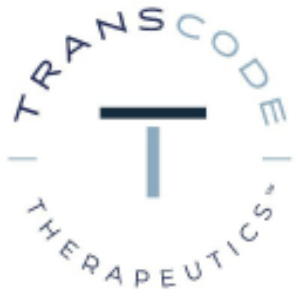Welcome to our dedicated page for Transcode Therapeutics news (Ticker: RNAZ), a resource for investors and traders seeking the latest updates and insights on Transcode Therapeutics stock.
TransCode Therapeutics Inc (RNAZ) is a clinical-stage biopharmaceutical company pioneering RNA-based therapies for metastatic cancers through its proprietary TTX nanoparticle delivery platform. This news hub provides investors and researchers with essential updates on the company’s progress in developing targeted treatments, including its lead candidate TTX-MC138 designed to inhibit metastasis-driving microRNA-10b.
Our curated collection offers immediate access to official press releases, clinical trial milestones, and strategic partnership announcements. Users will find updates spanning multiple critical areas: TTX platform advancements, regulatory submissions, financial disclosures, and peer-reviewed research collaborations in oncology.
Key content includes developments around the company’s nanoparticle delivery system, trial results for metastatic cancer therapies, and analyses of RNAZ’s position within the competitive oncology therapeutics market. All materials are sourced directly from company filings and verified industry publications to ensure reliability.
Bookmark this page for streamlined tracking of TransCode’s innovations in RNA oncology. Check regularly for new insights into how the company’s cutting-edge approach to metastatic disease treatment continues to evolve through clinical validation and strategic execution.
TransCode Therapeutics (NASDAQ: RNAZ) has received approval from the Dana Farber Cancer Institute Institutional Review Board (IRB) to advance its First-in-Human (FIH) Phase 0 clinical trial for TTX-MC138, targeting metastatic lesions in advanced solid tumors. The trial will assess delivery and pharmacokinetics of TTX-MC138 in up to 12 cancer patients. TTX-MC138 inhibits microRNA-10b, a key regulator of metastasis. Preclinical studies show promising results: complete elimination of local metastases in triple-negative breast cancer models and significant regression in pancreatic adenocarcinoma. This trial, conducted under an exploratory Investigational New Drug application, aims to generate critical data for future clinical studies, although it is not designed to demonstrate therapeutic effect. CEO Michael Dudley expressed optimism about the potential impact on cancer treatment.
TransCode Therapeutics (NASDAQ: RNAZ) announced the submission of a provisional patent application titled "Nanoparticles Comprising Payloads and Their In Vivo Delivery" (U.S. patent application 63/456,602) aimed at enhancing its TTX therapeutic delivery platform. This technology seeks to overcome challenges in delivering RNA therapeutics to tumors, which have been hindered by systemic inflammation and toxicity. The application expands the platform's capabilities to include gene editing and mRNA vaccines. CEO Michael Dudley emphasized that this innovation positions TransCode as a leader in targeted delivery systems. The new patent application aligns with the company's goal of providing personalized therapy for cancer patients and adds to its existing intellectual property portfolio, which includes several granted patents.
TransCode Therapeutics, Inc. (NASDAQ: RNAZ) announced a Common Stock Purchase Agreement with White Lion Capital, allowing the sale of up to approximately $1.08 million in common stock until May 31, 2023. The funds will be utilized for working capital and corporate purposes. The offering will occur under a previously filed shelf registration statement with the SEC. TransCode focuses on developing RNA therapeutics to treat various cancers, with their lead candidate, TTX-MC138, targeting metastatic cancers responsible for a significant portion of cancer deaths globally. Additional candidates include TTX-siPDL1 and TTX-siLIN28B, aimed at inhibiting tumor growth.
BOSTON, April 6, 2023 (GLOBE NEWSWIRE) -- TransCode Therapeutics (NASDAQ: RNAZ), the RNA Oncology Company™, will present new results at the AACR Annual Meeting from April 14-19. Highlights include:
- A study showcasing the RNAi-based checkpoint inhibitor TTX-siPDL1 in pancreatic adenocarcinoma, indicating successful therapeutic efficacy.
- Preclinical data on TTX-MC138 demonstrating efficacy and mechanism in pancreatic adenocarcinoma models.
- A Phase 0 microdose study demonstrating delivery of radiolabeled TTX-MC138 in patients with advanced solid tumors.
Zdravka Medarova, CTO, emphasized the rapid progress toward clinical trials aimed at metastatic disease treatment. With recent FDA approval for TTX-MC138's First-in-Human Study, the company advances from animal studies to clinical trials.
TransCode Therapeutics (NASDAQ: RNAZ) has secured a third-year Fast-Track Small Business Innovation Research (SBIR) grant amounting to nearly $871,000 from the NIH. This funding will support clinical evaluations of TTX-MC138, the company's lead therapeutic candidate targeting advanced solid tumors, particularly those associated with metastatic disease. CEO Michael Dudley expressed gratitude for the NIH's ongoing support, emphasizing the potential of their TTX platform. The company is preparing for a first-in-human study and has shown promise in preclinical trials, specifically against micoRNA-10b in metastatic cancer models.
TransCode Therapeutics, Inc. (NASDAQ: RNAZ) announced that it will not complete the sale of Series A Convertible Preferred Stock originally valued at $500,000 due to the proposed purchaser's withdrawal from the agreement. The company will not issue any shares related to this transaction and has reserved its legal rights. TransCode aims to enhance cancer treatment through RNA therapeutics, with its lead candidate, TTX-MC138, targeting metastatic cancers linked to high mortality rates. The firm also explores several other drug candidates and gene-editing platforms to improve patient outcomes in oncology.

